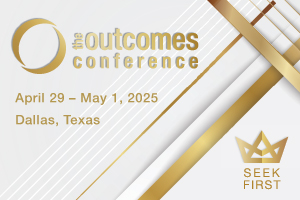
The Right Compensation By Bruce Dingman
The Right Compensation for Hiring the Best Talent
Having a well thought through compensation plan can make a tremendous difference in staff morale, how employees think leadership values them, if they are being treated fairly, and employee engagement. Not only is compensation important in employee retention, it also has a big effect on attracting good talent.
SALARY RANGES
Organizations that attract, retain, and engage top talent utilize salary ranges designed to reward people and support culture. These ranges are based on job expectations, the level of responsibilities, and determined by benchmarked data. Having ranges gives leaders the flexibility to match pay to the criticality of the job and a person’s expertise.
With benchmarked ranges in place, there are many things to consider but often the goal is to start a person off at or below the mid-point of the range. A starting salary that is too low on the range may not be affordable and a high starting salary may leave little room for growth.
Compensation is as much an art as it is a science. Jobs mapped to ranges provide flexibility in salary administration. Someone who has just finished an internship and is stepping into a role for which the hope is they will grow into it, might start well below the mid-point. And you may be hiring a person with highly specialized skills or deep expertise that require you to offer a salary above the mid-point.
Ranges are set by market benchmarks and jobs are aligned to those ranges. It is important that these ranges have a wide enough spread to cover both the “new to job” employees as well as highly experienced employees, (i.e. IT roles may have a higher pay range than HR or Ops).
FAIRNESS
“Fairness” in your compensation system does not mean that all jobs align to the same job salary range. Fairness is determined by what the market pays for that job. Therefore, the range spread will depend on things like job level, function, and geography. For example, a senior level may have a 25-30% or more spread above and below the mid-point whereas an entry level role may have a smaller spread. Based on benchmarking, CEOs often earn up to 2x or more than the next highest paid position. So, well designed salary ranges are designed to provide you the flexibility needed to get the right talent in the right positions and yet remain good stewards of your finances.
INITIAL OFFERS
Once you have solid ranges aligned to your jobs, how does this affect your hiring process? What should you offer as a starting salary?
Considerations need to include things like: what is the salary range this job is linked to, what has the candidate been earning, where are other people in that job on the same salary range being paid, what is the level of experience, are they moving into or from a higher/lower cost of living geography, etc. ?
The best way to discover a candidate’s needs is to say “We are thinking of offering you $XXX,XXX. How does that fit with your expectation?” Based on their reply, ranges give you the flexibility to adjust if needed. Sometimes you might need to respond to their answer saying, “That’s above what we were planning so let me get back to you.” This is important to understand early in the process. Remember, the goal is to get the best fit candidate for your open position and ranges need to serve your organization’s unique needs. Sometime a person may be so uniquely fitted for a hard to fill position that as an exception you will need to consider paying outside of the existing salary range.
TOTAL COMPENSATION
Some not-for-profit organizations feel that their people should be so strongly called to the mission that they are willing to accept lower than benchmarked compensation. This may be in support of being good stewards by keeping costs down. The concept of “total compensation” considers more than just base pay as a means of reward. There are company benefits, organization culture, the mission, growth opportunities and how fulfilled a person is by contributing to the organization’s purpose.
####
Bruce Dingman, president of The Dingman Co., does executive searches for Christian organizations plus serves on the boards of CrossWorld, Agora Enterprises and Open Doors. He can be reached at bruce@dingman.com

Christian Leadership Alliance – A place where a leader like you belongs.
Become a Member!





